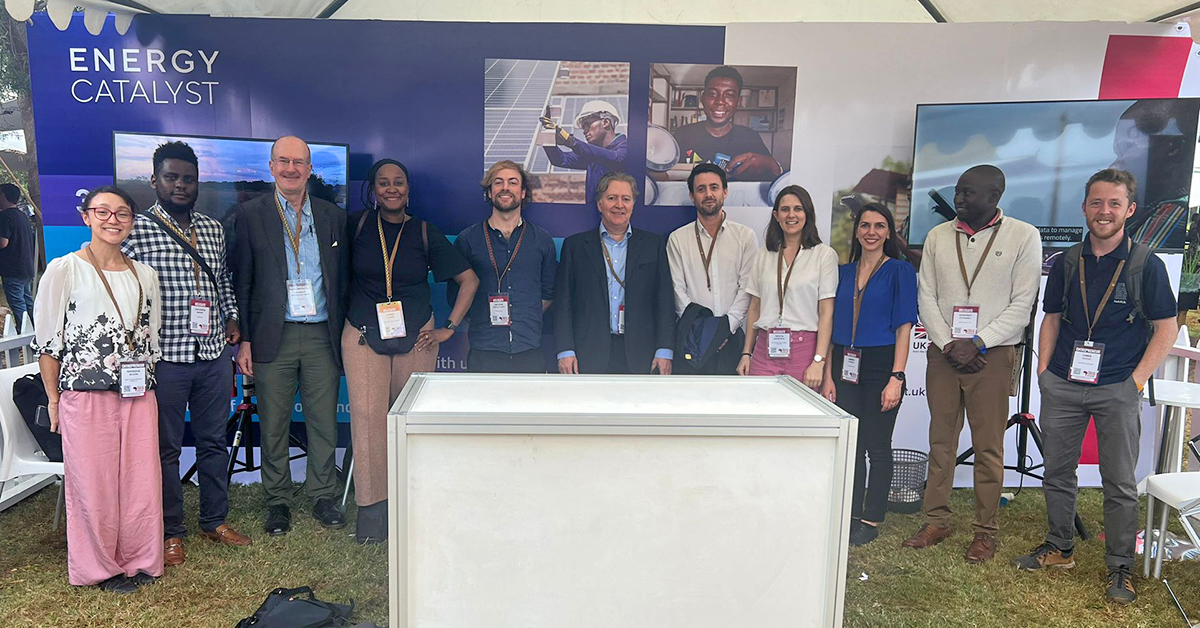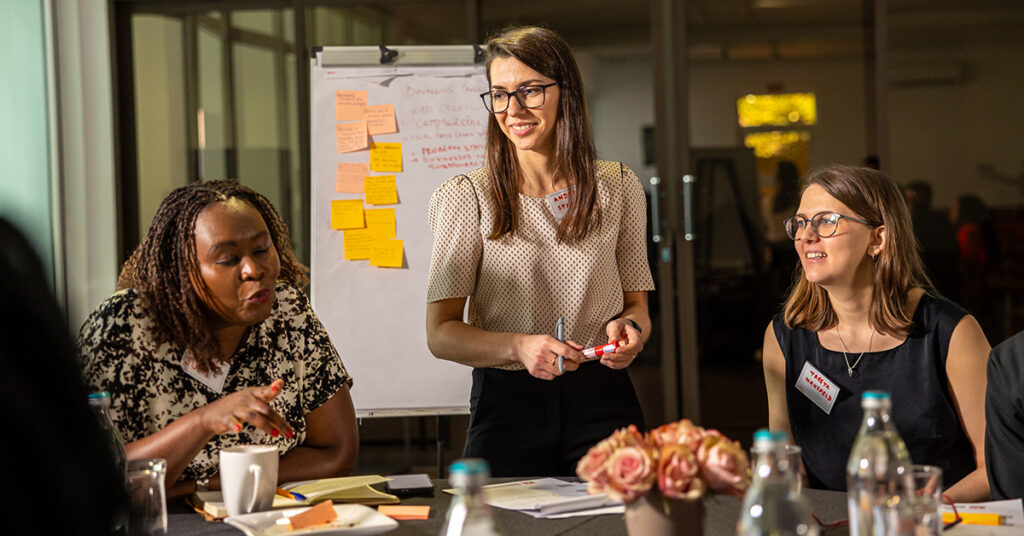Sankalp Africa Summit 2024 – Harnessing the power of innovation and collaboration to achieve a just energy transition
Sankalp Africa Summit 2024, took place 28-29 February in Nairobi, Kenya, and provided an invaluable opportunity for entrepreneurs, investors, policymakers, and development partners to exchange ideas and catalyse the necessary actions to achieve a just energy transition. Organised by Intellecap, an Energy Catalyst delivery partner that provides advisory to businesses operating in underserved segments across Africa and Asia, this year’s summit centred on the theme “Catalysing Impact: Igniting Africa’s Potential for a Just Transition.” The summit attracted a large and vibrant gathering with over 1,500 stakeholders in attendance.

Eager to engage with other industry pioneers, a delegation of 22 Energy Catalyst companies navigated a packed agenda of investor roundtables, networking events, masterclasses, deal rooms, debates, showcases, and panel sessions. With an overarching mission of leveraging collaboration and innovation to achieve the UN Sustainable Development Goals, the summit provided rich dialogue around critical themes such as gender and livelihoods, agriculture, climate change and energy, circular economies, water, health and sanitation, and financial inclusion. Energy Catalyst companies were particularly keen to explore solutions to the policy and financing challenges that constrain energy access across Africa. Company representatives were also quick to join the lively networking sessions in order to connect with the investors, suppliers, distributors and other stakeholders critical for scaling their innovative solutions.
In an interview with CNBC Africa on the sidelines of the summit, Jillian Henderson, Innovation Lead at Innovate UK, discussed the financing challenges faced by clean energy innovators. Speaking about the key drivers for successful capital raising, she said that “investment opportunities are being created by the global alignment between climate goals and energy security goals. It has become more apparent that the clean energy sector is the future and we must achieve energy security through local decentralised energy systems that are low-carbon, reliable and affordable.” Citing the abundant sunshine in Africa, coupled with technological advances and the development of national energy access plans, Jillian painted an optimistic picture of “solar and storage coming together” to meet the needs of off-grid communities. The summit gave Energy Catalyst a valuable opportunity to convene innovators from other accelerator programmes through the Innovator Knowledge Bridge (IKB) partnership. Attendees from GrowthAfrica, KCIC, Clean Technology Hub, Social Alpha and New Energy Nexus, as well as Energy Catalyst, exchanged insights on the challenges and opportunities they face as clean energy innovators on the pathway to scale. Potential collaborations were discussed, and selected representatives also received useful feedback on pitching their projects, including from crowdfunding platform Charm Impact.

The Energy Catalyst portfolio was under the spotlight during a panel session “Green is the New Gold: Empowering Africa’s Energy Transition” hosted by the consortium team. Addressing an engaged sector audience, executives from Powerhive, Davis & Shirtliff, IITA and ion Ventures showcased their technological and business model innovations across e-mobility, solar irrigation, agribusiness support and renewable generation.
In the second half of the session, funders including the Global Alliance for People and Planet (GEAPP), Open Capital and Charm Impact highlighted the crucial role of blended finance models in financing innovation, through a combination of grants, commercial debt, equity investments, and development finance. The importance of grants was highlighted by Samuel Njuguna, Investment Officer at Charm Impact: “Grant funding from initiatives like Energy Catalyst is vital for de-risking early-stage innovations that otherwise struggle to attract private finance.” In order to achieve scale, however, panellists noted the value of a broader ecosystem approach that encompasses technical assistance and investor readiness. Panellists discussed how larger capital flow into the sector could be unlocked by increasingly favoured mechanisms such as green bonds, results-based financing, and crowdfunding platforms. Other recurring themes included the importance of locally-tailored solutions driven by user research and the need to leverage digital technologies to improve affordability and access further.
Energy Catalyst companies also seized the opportunity to pitch their innovations to a curated group of investors in the Climate Deal Room. Matt Carr, CEO & co-founder of Agsol, testified that he “had interesting and productive discussions with several potential investors interested in our innovative agricultural processing technology powered by renewable energy.” Other companies also forged fresh connections with the potential to lead to financing deals or partnerships, reinvigorating our delegation in their mission to drive clean energy innovation forward.
Godfrey Katiambo, Senior Energy Access Specialist at Mercy Corps-Energy 4 Impact, summed up the power and purpose of the summit. “Our delegation left the summit highly impressed by the spirit of collaboration among participants, and that willingness to share knowledge will be essential to accelerating the just energy transition in Africa. The sheer diversity of business models and technologies on display, featuring tailored, locally-driven solutions, filled us with optimism that the unique energy challenges across the continent can be solved. We look forward to continuing our support to the dynamic innovators in the Energy Catalyst portfolio as they scale their impact in the years ahead.”